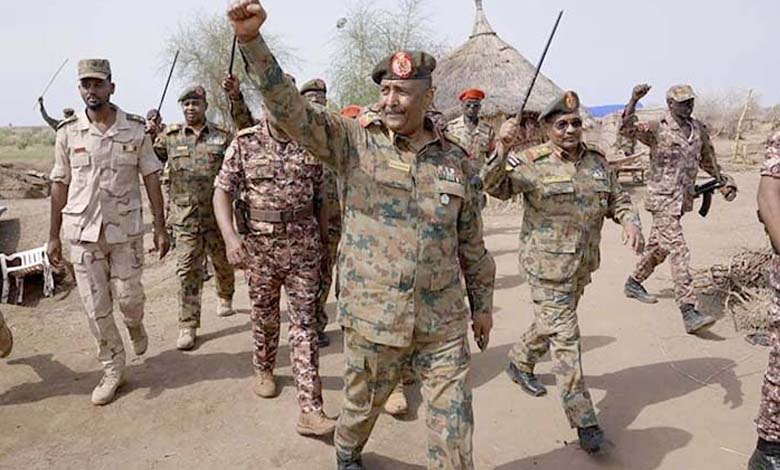Armed Forces and Militant Movements Supporting the Sudanese Army Sign Transitional Document

Sudanese political forces, including 48 parties and armed movements supporting the army, announced Wednesday evening the signing of the “Sudan Charter” in the Egyptian capital, Cairo, to resolve the crisis and lay the foundation for a transitional phase in the country, amid opposition from the Council of Guardians of the National Congress Party, which described it as an exclusionary action aimed at reinstating the Islamic movement and the former regime to power.
Signing the charter were the head of the “Democratic Bloc” and deputy head of the “Democratic Unionist Party,” Jaafar al-Mirghani, the head of the “Umma Party” Mubarak al-Fadel al-Mahdi, the head of the “Sudan Liberation Movement” Minni Arko Minawi, the head of the “Justice and Equality Movement” Jibril Ibrahim, the head of the “Sudanese Ba’ath Party” Yahya al-Hussein, the head of the “National Movement Bloc” Taj al-Sir al-Sissi, and the National Leap Alliance “Leap Alliance.”
Also signing the document were the head of the “Supreme Council of Guardians of the Ba’ath and Independent Columns” Mohamed al-Amin Turk, the Awakening Council led by Musa Hilal, the “Reform Now Movement” led by Ghazi Salah al-Din, the “Popular Congress Party,” representatives of the church council, and representatives of Sufi paths.
The charter left the duration of the transitional period to be determined by the dialogue expected to be held in the coming period, to identify the requirements of each issue such as transitional justice, education, health, and the economy.
It called for the reform, development, and construction of a professional and national army that reflects diversity, based on the armed forces, and the integration of all forces of the armed movements that signed the Juba peace agreement and committed to it and other agreements into the armed forces, while the role of the Rapid Support Forces was not addressed during the transitional period and their integration into the army.
The charter defined the tasks of the transitional period and adopted a governance system at three levels, in addition to defining the tasks of the transitional period, which begin with rebuilding what the war destroyed and addressing the economic crisis, holding the national constitutional conference, and drafting a permanent constitution for Sudan, in addition to implementing the Juba peace agreement and completing the security arrangements in other agreements, and addressing the issue of East Sudan while continuing to freeze the East track.
The “Sudan Charter” included the announcement of proposed governance bodies at the levels of sovereignty and ministers in addition to the state level and the legislative council, specifying selection criteria for all governance bodies with the adoption of a civilian-military sovereign council.
The signatories reaffirmed their commitment to the Sudanese dialogue through a national committee and the Sudanese dialogue conference to develop constitutional arrangements to manage the transitional period after the war and transition to a democratic civilian rule.
Saeed Ali Abu Amna, the political secretary of the Supreme Council of Guardians of the Ba’ath and Independent Columns, described the “Sudan Charter” as a “Kizani Charter” affiliated with the Islamic movement and aimed at reinstating the former regime.
Abu Amna said in a video posted on the “X” platform that he portrays and speaks from in front of the conference venue, indicating that what is happening inside the conference corridors is “an exclusionary action unrelated to the Sudanese people.”
He added that the main goal of the basic group that gathered at this conference is to “create a platform for supporting and prolonging the war, in order to maintain the current situation without reaching solutions for Sudan.”
He emphasized that “the main goal of these forces is to support and prolong the war to remain in power,” noting that “the forces of the Sudan Charter” have no relationship with Sudan or peace.
He explained that he conveys these facts to all Sudanese people who are eager for a solution and for stopping the war, reiterating that what is happening is nothing but “a forum for prolonging the war,” according to his observations and personal attendance.
Mubarak Ardol, head of the political bureau of the Democratic Alliance for Social Justice, stated on his account on the X platform: “I had the honor on Wednesday to sign on behalf of comrades of the Democratic Alliance for Social Justice among 48 parties and movements on the Sudan Charter.”
Ardol revealed that the Charter is a vision of political and civil forces to manage the foundational transitional period, and that it will mark the beginning of a new foundation for the Sudanese state after April 15.
The principles of the signed Charter confirmed the return of Sudan’s unity and sovereignty, the legitimacy of the armed forces and their responsibility to maintain security, defend the country’s unity, and limit the use of legitimate force, along with a decentralized democratic governance system.
The signatories also emphasized that the objective is to achieve a political settlement of the crisis and end the war, by agreeing to a transitional period to govern the country and ensure the necessary security and stability for the transition to a democratic civilian government.
The Sudan Charter calls for the continuation of dialogue at the Jeddah platform and its affiliations, to cease fire for humanitarian purposes in accordance with commitments made, by implementing what was signed on May 11, 2023, especially the withdrawal of citizens from homes and civilian facilities, while developing the platform by including friendly and brotherly countries, in addition to addressing the causes of the war and proposing comprehensive solutions ensuring stability.












